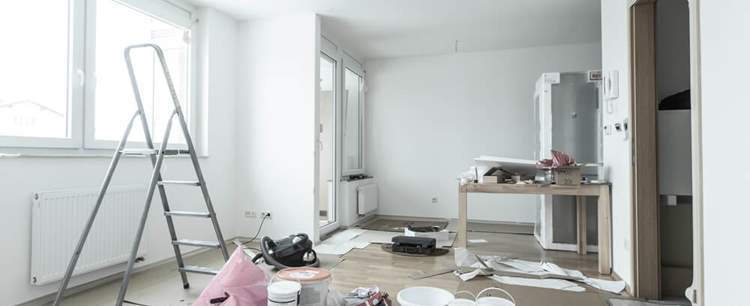Did you get a new iPad or tablet for Christmas? If so, some of the first websites you are likely to have browsed were houses, television property guru Sarah Beeney told the Telegraph newspaper.
Although your browsing might have whetted your appetite for a higher standard of living, that doesn’t have to mean moving home, leaving an area where you already have a close circle of friends, and spending lots of money in the process.
You might extend or renovate or present home instead.
Why extend or renovate?
Here are some of the reasons for extending or renovating your home:
-
- you might choose to transform an acceptable or slightly cramped house into the home of your dreams;
- a carefully planned and designed extension lets you put your own creative stamp on the property – distinguishing it from your neighbours;
- extending or renovating a property that was previously abandoned or rundown gives it a new lease of life and returns it to service as a sought-after part of the nation’s housing stock;
- building an extension or renovating your home might be a more economical option that moving house – and the expense of estate agents’, solicitors and removal fees to pay, not to mention the Stamp Duty you are also likely to face on the new home;
extending or renovating a property can help push up its value; - simple and straightforward building works or refurbishment may offer a way of releasing and realising your previously hidden DIY skills – even a small contribution of quite basic labour on your part may help to reduce the costs of builders and other tradesmen;
- extending or renovating a buy to let property may significantly increase the rental yields you enjoy as the landlord
Insurance
Whatever your reasons for extending or renovating – whether it is your home or one you have bought to let – insurance is something not to be overlooked.
Unless the renovations involve more than a lick of paint – and an extension is certainly much more than that – your existing home or landlord insurance policy is unlikely to suffice. Indeed, most property insurance policies specifically exclude risks involving any structural alteration to the building.
As an article in our Knowledge Base explains, if you are planning an extension or other major building works, you need to arrange specialist renovation insurance.
The standalone form of cover ensures that critical risks continue to be covered, namely that any structural damage to the existing building continues to be in place.
Also, since there are likely to be periods when you need to vacate the home, specialist unoccupied property insurance (including property undergoing wokrs) typically needs to be in place to safeguard the empty building.
Specialist renovation insurance may be arranged for whatever period is necessary – only three or six months, let’s say, rather than the full year required by most types of general insurance. But thanks to its flexibility, you may extend the period of cover if, for example, the schedule of building works overruns.







